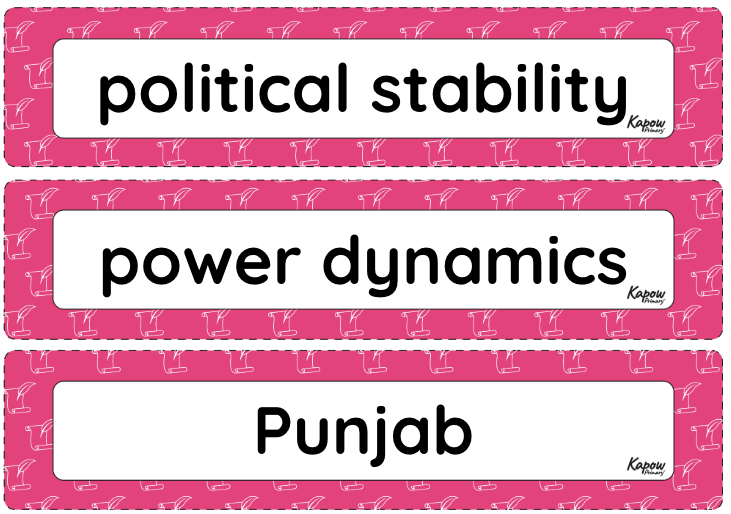Please note
This unit has been replaced by the unit What was the Sikh Empire? and will no longer be updated.
Unit outcomes
Pupils who are secure will be able to:
- Explain terms such as unification and absolute power.
- Identify the skills and behaviours of leaders that contributed to achieving a goal.
- Describe and assess the impact of beliefs on change.
- Identify the significance of trade routes.
- Make deductions and inferences from sources.
- Apply criteria to decide and explain historical significance.
- Describe how and why interpretations are different.
- Make observations and explain historical achievements.
This unit prepares the children for the challenges of Key stage 3 History. It gives them the historical skills of inference, extracting information from sources, evaluating historical figures and the opportunity, like historians, to decide their criteria for significance. The activities are well-suited to children entering Key Stage 3.
Suggested prior learning
How have children’s lives changed?
This assumes that you are following Kapow Primary’s History Long-term plan – standard.
Lessons
Lesson 1: How did Maharaja Ranjit Singh lead within the Sikh Confederacy?
Lesson 2: How did Sikh beliefs impact society?
Lesson 3: How did Lahore become a global trading hub during the Sikh Empire?
Lesson 4: Why was Maharaja Ranjit Singh significant?
Lesson 5: How do different interpretations shape our understanding of the Sikh Empire?
Lesson 6: How do the achievements of the Sikh Empire compare with those of other civilisations?
Key skills
This content is for subscribers only. Join for access today.
Key knowledge
To know:
- That change can
This content is for subscribers only. Join for access today.
Key vocabulary
absolute power
achievements
This content is for subscribers only. Join for access today.
Related content
Unit resources
Cross-curricular opportunities
British values: Mutual respect, Tolerance of those with different faiths and beliefs.
Religious Education
Geography: Human geography



